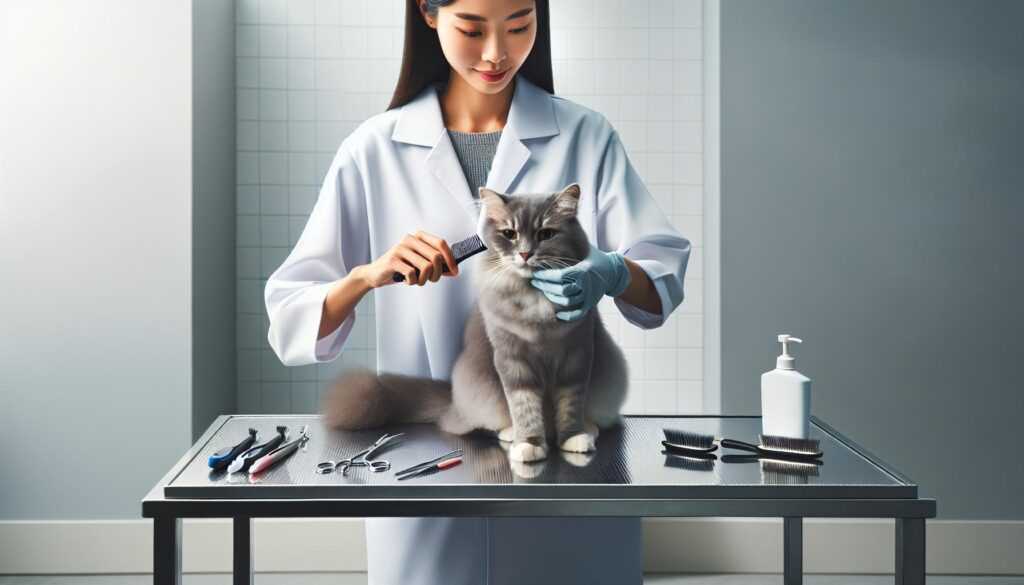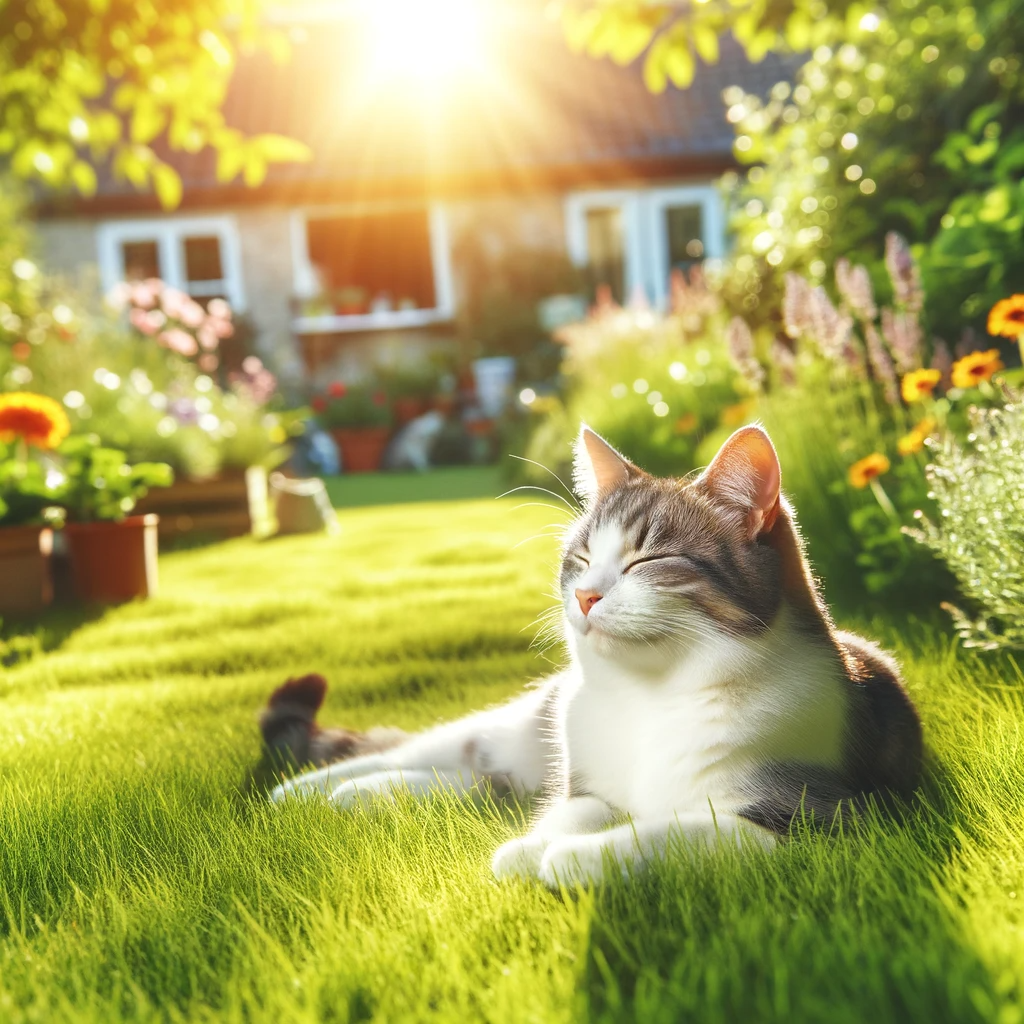Ever wondered if your feline friend could join you as you sip on your favourite almond milk? It’s a question I’ve pondered while enjoying my morning smoothie, especially with those big, curious eyes watching me. Well, I’ve done some digging, and it turns out the answer isn’t as straightforward as you might think.
Almond milk’s popularity has skyrocketed among us humans, but when it comes to our cats, there’s a bit more to consider. Sure, it’s non-dairy and lactose-free, which sounds perfect for kitties, right? But hold that thought—there’s a twist in the tail! Let’s dive into the world of cats and almond milk to see if it’s a treat or a no-go.
Can Cats Drink Almond Milk?
When I think about treats for my feline friend, I often consider what’s safe and what could be harmful. Almond milk, due to its popularity among humans, naturally becomes a point of intrigue.
Almond milk is not poisonous to cats and can be consumed in moderation, but it’s not a necessary part of their diet. Considering cats are obligate carnivores, they need a diet primarily of meat for essential nutrients, which almond milk does not provide. Added ingredients in almond milk are a concern for the health of cats.
Many commercial almond milks are loaded with additives like sugar, preservatives, and sweeteners such as xylitol, which is highly toxic to cats. Even without these additives, almonds are naturally high in fats and oils, which can upset a cat’s stomach or contribute to obesity and pancreatitis if consumed regularly.
Most adult cats cannot properly digest lactose because they lack the necessary enzyme lactase, making them lactose intolerant. Even though almond milk doesn’t contain lactose, it isn’t necessarily safe for cats since they don’t require milk post-weaning, and almond milk can cause stomach issues because of its richness and various additives.
Considering these points, if you’re thinking of giving your cat a lick or two of almond milk, it should generally be okay if it’s an unsweetened, plain variety and given as a rare treat. To be on the safe side, I always recommend consulting with a vet before introducing any new food item to your cat’s diet. They can provide personalized advice based on your cat’s health history and dietary needs.
Beyond that, if a cat accidentally consumes almond milk, watch for any signs of gastrointestinal distress or allergic reactions. Symptoms can include diarrhoea, vomiting, or changes in behaviour. If you notice any of these symptoms, it’s best to contact your vet immediately.
What is Almond Milk
When I’m considering what treats I might be able to share with my feline friends, I often encounter the question of almond milk. Is it suitable for cats, and what exactly is it? To understand whether almond milk is a safe option for cats, I must first explain what this popular dairy alternative is.
Almond milk is a plant-based drink made from ground almonds and water. It’s become a favourite among those avoiding dairy, be it for health reasons, lactose intolerance, or dietary preferences. The popularity of almond milk has skyrocketed due to its creamy texture and versatility – it’s used in everything from cereals to coffee.
Ingredients of Almond Milk
Whether I’m browsing the supermarket or whipping up a homemade batch, I’ve discovered that the basic ingredients of almond milk are remarkably simple:
- Almonds: The main component of almond milk, which provides its distinct nutty flavour and creamy consistency.
- Water: Used to blend with almonds to create the milk.
However, store-bought almond milk often contains additional ingredients, such as:
- Emulsifiers like lecithin, which help stabilise the mixture and prevent separation.
- Thickeners like carrageenan or gellan gum, enhancing the milk’s texture.
- Vitamins and minerals: These may be added to enrich the almond milk nutritionally, potentially including Vitamin D, calcium, and vitamin E.
- Sweeteners, natural or artificial, to improve taste. Unsweetened almond milk, however, should be free from these.
- Preservatives: To extend the shelf life of the product.
When it comes to my cats, I’m particularly cautious about any added ingredients. Substances like sweeteners and preservatives, which are harmless to humans, can sometimes be problematic for cats, potentially leading to health issues if consumed in significant quantities.
Nutritional Content of Almond Milk
Almond milk’s nutritional content is quite different from cow’s milk, and it’s worth noting the numbers to appreciate the potential impacts on a cat’s health. Below I’ve tabulated some of the typical values found in unsweetened almond milk compared to whole cow’s milk:
| Nutrient | Almond Milk (per 100ml) | Cow’s Milk (per 100ml) |
|---|---|---|
| Energy | 13 – 17 kcal | 61 – 68 kcal |
| Protein | 0.4 – 0.5 g | 3.2 – 3.4 g |
| Fat | 1.1 – 1.5 g | 3.5 – 3.9 g |
| Carbohydrate | 0.1 – 0.2 g | 4.6 – 4.8 g |
| Fibre | 0.2 – 0.4 g | 0 g |
| Sugars (if added) | Varies | Approx. 5 g |
The above values can vary quite significantly between brands and types, particularly when sweeteners or flavourings are added to almond milk. It’s crucial to note that almond milk is markedly lower in protein and calories compared to cow’s milk – both critical components in a cat’s diet. Moreover, even though almond milk is lower in fat than cow’s milk, it’s still rich enough to potentially cause issues in cats, especially if served regularly.
Cats and Almond Milk
Lactose Intolerance in Cats
One of the reasons we might consider offering almond milk to our feline friends is their well-documented trouble with lactose. Contrary to the popular image of cats happily lapping up a saucer of cow’s milk, many cats are lactose intolerant. This means their digestive systems lack sufficient amounts of the enzyme lactase required to break down lactose, the sugar found in milk.
Consequently, when a lactose-intolerant cat drinks milk, they often experience digestive upsets such as diarrhoea or stomach pain. It’s easy to see why one might gravitate towards plant-based alternatives like almond milk, which are naturally lactose-free. However, remember that while it avoids the lactose issue, almond milk doesn’t satisfy a cat’s dietary needs and carries its own set of concerns.
Almonds and Cats
While almonds themselves aren’t toxic to cats, they’re far from an ideal snack for our four-legged companions. Cats are obligate carnivores, which means their diets should be predominantly made up of proteins and not the fats and oils found in almonds. Almonds are dense in calories and fat, not to mention they can be a choking hazard or obstruct a cat’s intestines if ingested.
Almond milk in small quantities isn’t as harmful as whole almonds and has fewer calories, but it’s not suitable for a cat’s diet due to its low protein content and lack of essential nutrients cats require. It doesn’t present a direct danger, but it’s not advisable to include it as a part of a cat’s regular diet.
Plain and unsweetened almond milk might be served as a rare treat, but I remain skeptical about incorporating it as a food staple. After all, it doesn’t bring much to the table beyond a momentary taste diversion.
Potential Dangers of Almond Milk for Cats
While we’ve established that almond milk isn’t toxic, it’s imperative to acknowledge the potential risks associated with offering it to cats. The primary concern revolves around the additives found in store-bought almond milk. These include:
- Sugar
- Artificial sweeteners (such as xylitol, which is highly toxic to cats)
- Preservatives
These substances can be harmful to cats, potentially leading to gastrointestinal issues and contributing to conditions like obesity and dental problems. And there’s also the risk of pancreatitis, an inflammation of the pancreas that can be triggered by high-fat diets.
When considering the nutritional composition of almond milk, you’ll find it’s notably lacking in comparison to what’s required in a cat’s diet. Here’s a quick breakdown:
| Nutrient | Cow’s Milk | Almond Milk |
|---|---|---|
| Protein | Higher | Lower |
| Calories | Higher | Lower |
| Fat | Variable | Lower |
Cats thrive on high-protein, moderate-fat diets with precise caloric intake to maintain healthy weights and support their energetic needs. While almond milk may seem a safe treat, its nutritional profile makes it less than ideal.
Moreover, some cats may have a sensitivity to almonds or almond milk, leading to allergic reactions or gastrointestinal distress even from small amounts. Therefore, it’s wise to monitor your cat closely after offering any amount of almond milk, noting any behaviour or health changes and being prepared to contact your vet if you’re concerned.
The writer approaches the idea of introducing almond milk into their cat’s diet with care, noting that it isn’t a traditional part of what cats would naturally consume. Though opinions differ among cat owners, professionals typically recommend against giving cats almond milk frequently as it offers no real health benefits and is not toxic. The writer underscores the significance of speaking with a vet to get tailored dietary guidance for one’s cat.
Alternatives to Almond Milk for Cats
When we consider the appropriate drinks for our feline friends, it’s crucial to realise that while almond milk isn’t toxic, it’s not necessarily the best choice. If you’re looking for safer alternatives to almond milk for ensuring your cat’s hydration and well-being, several options can serve as suitable substitutes. Let’s delve into some of these alternatives that will keep your cat happy and healthy without the risks associated with almond milk.
Water
First and foremost, water is, without a doubt, the best drink for cats. Cats require clean, fresh water daily to maintain their health. Ensuring that your cats have access to water at all times can prevent dehydration and a host of related health issues. Unlike almond milk, water is a natural part of a cat’s diet, and it’s crucial for their bodily functions.
Here’s why water outshines any other beverage for cats:
- Hydration: Cats need to stay hydrated, and water is the most effective way to ensure this.
- No Calories: Water doesn’t add any unnecessary calories to your cat’s diet.
- Kidney Function: Adequate water intake supports healthy kidney function and can reduce the risk of urinary tract diseases.
- Temperature Regulation: Water helps regulate body temperature, particularly important for cats who might tend to overheat.
It’s best to serve water in a clean bowl that’s refreshed at least once a day to encourage your cat to drink regularly.
Cat Milk Replacements
If you’re keen on giving your cat a milk-like treat, several commercial cat milk replacement products are formulated specifically to meet feline dietary needs. Unlike almond milk, these replacements usually contain reduced lactose levels, making them easier for cats to digest. Cat milk replacements can be a great occasional treat and come fortified with various essential nutrients, like taurine, an amino acid crucial for a cat’s eye health.
These replacements offer the following benefits:
- Lactose-Reduced: Specially formulated to be safe for cats who may suffer from lactose intolerance.
- Nutritional Supplements: Often enriched with vitamins and minerals beneficial to a cat’s health.
- Taste Appeal: Flavoured in a way to entice cats, making it a suitable treat.
However, even these cat-specific milk replacements should be given in moderation as part of a balanced diet. Always be sure to read the labels and choose a product with the least amount of additives.
Goat Milk
Another interesting alternative to almond milk for cats is goat milk. Some owners have found that goat milk can be easier to digest due to its lower lactose content when compared to cow’s milk. That said, it’s not completely lactose-free, so there’s still a chance that it could cause digestive issues in lactose-intolerant cats. Nevertheless, it is considered by some to be a safer option than regular cow’s milk and, by extension, almond milk.
Here’s what to note when considering goat milk for cats:
- Digestibility: Often tolerated better than cow’s milk due to a different protein structure.
- Occasional Treat: Just like other milk alternatives, it should be given as an occasional treat, not a dietary staple.
- Raw vs Pasteurised: Raw goat milk contains live enzymes that can be beneficial; however, pasteurised goat milk is safer as it eliminates harmful pathogens.
When opting for goat milk, always introduce it to your cat’s diet slowly and in small quantities to assess their tolerance. Also, it is wise to consult your veterinarian for advice tailored to your particular furry companion. Remember, while these alternatives may be safer than almond milk, water remains the most vital and natural drink for cats. The key is to strike a balance; offer indulgent treats sparingly while making water the cornerstone of your cat’s hydration routine.
Conclusion
So there you have it! While I’ve explored a few alternatives to almond milk for our feline friends, it’s clear that nothing beats good old-fashioned water for keeping them happy and healthy. If you’re keen on giving your cat a little variety, specially formulated cat milk or even a splash of goat milk can be a fun treat—just remember to do so sparingly. Always keep your vet in the loop when you’re introducing something new to your cat’s diet. They’re the best resource for ensuring your kitty’s nutritional needs are met. Here’s to healthy, hydrated, and happy cats!
Frequently Asked Questions
Can cats drink almond milk?
No, almond milk is not recommended for cats due to its potential to cause stomach upset and the fact that it lacks the essential nutrients that cats require.
What is the best drink for cats?
Water is the best drink for cats. It’s a vital part of their diet and is essential for their hydration, kidney function, and overall health.
Are commercial cat milk replacements safe for cats?
Yes, commercial cat milk replacements are safe for cats when given occasionally. They are specially formulated with reduced lactose levels and added nutrients to meet feline dietary needs.
Can cats have goat milk?
Cats can have goat milk in moderation, as it has lower lactose content compared to cow’s milk, but it should not be a regular part of their diet.
Should new drinks be introduced to cats slowly?
Yes, new drinks should be introduced to cats slowly. Consulting a veterinarian before altering your cat’s diet is also advisable for tailored advice.
Is water sufficient for a cat’s hydration needs?
Absolutely. Water alone is sufficient to meet a cat’s hydration needs and is crucial for their overall wellbeing.





